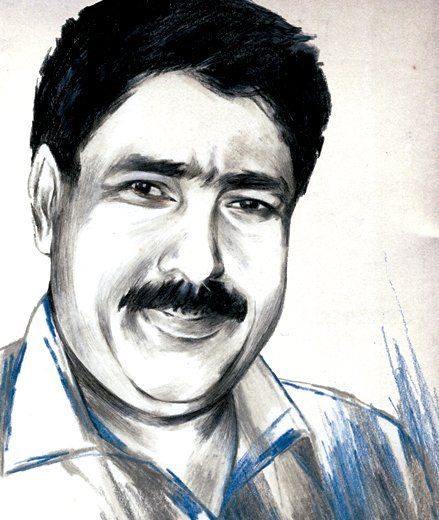
His medical colleagues at Jamrud Hospital in Pakistan's northwestern Khyber tribal agency suspected he was having an extramarital affair. When they asked Dr. Shakeel Afridi, the hospital's chief surgeon, why he was absent so often last spring, he replied curtly that he had "business" to attend to in Abbottabad. The mystery only grew when one doctor accused Afridi of having taken a half-dozen World Health Organization cooler boxes without authorization. The containers are for keeping vaccines fresh during inoculation campaigns, and yet no immunization drives were underway in Abbottabad—or the Khyber agency either, for that matter.
In fact, Afridi wasn't cheating on his wife—he was in the thick of the hunt for Osama bin Laden. At the request of the CIA, which had reason to think the al Qaeda leader was holed up in a high-walled compound in Abbottabad, the doctor had mounted a fake hepatitis-immunization program. Having spearheaded several polio-immunization drives over the years, Afridi knew how to stage the campaign convincingly. Renting a house near the compound, he hired a local nurse who thought the drive was genuine. The idea was for her to visit the compound and get a blood sample from at least one of the children who lived there. If the kids in the compound were bin Laden's, DNA from the sample would tell the Americans they were on the right track.
The nurse got in, a knowledgeable Pakistani official tells Newsweek. He can't say if she was able to get the DNA sample, but the ruse evidently paid off. Defense Secretary Leon Panetta recently acknowledged that Afridi's efforts were "very helpful" in the run-up to the U.S. raid that killed bin Laden last May. Now, however, Afridi is in a world of trouble. Three weeks after the raid, Pakistani intelligence officers arrested him. His Pakistani-born wife (an American citizen) and children have vanished from the family's Peshawar home. A special government commission has recommended that he be charged with "conspiracy against the state of Pakistan and high treason" for taking part in a foreign intelligence operation. If tried and convicted, the doctor could theoretically be hanged.
The anonymous Pakistani official is sympathetic to Afridi's plight, saying he "was not a proper CIA spy." Unfortunately, the official says, the Pakistani media have trumpeted the case. "If his name had not appeared so prominently in the media, perhaps a way could have been found to let him go," the official says. But Afridi may never again be out of danger—not even if Pakistan somehow decides to free him and send him and his family to America. A physician who knows him well worries that Afridi will always be a marked man. "I know some people would make a kebab of his body if they found him," he says.
One question persists: why didn't the CIA whisk Afridi and his family out of the country before Pakistan's intelligence agencies discovered his role? "Letting him hang out to dry like this is not going to help the CIA to recruit oth-er Pakistanis," says a Western diplomat in Islamabad, declining to be quoted by name. Still, Afridi may bear some responsibility himself. The agency looks after its own, a former high-level CIA officer argues. "I do not believe they left him high and dry," says the officer, who tracked al Qaeda in Central Asia after 2001. "Our core value is taking care of those who support us." Afridi may not have understood the risk, the officer suggests: "I've seen it before, where you have a guy at a very high-risk situation, and you offer help and they turn it down. They misread the situation." It's easy to do. Just ask Afridi's old colleagues.
With Aram Roston in Washington
Uncommon Knowledge
Newsweek is committed to challenging conventional wisdom and finding connections in the search for common ground.
Newsweek is committed to challenging conventional wisdom and finding connections in the search for common ground.
About the writer
To read how Newsweek uses AI as a newsroom tool, Click here.








